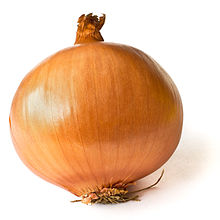Beautifully typical conversation with Straight Best Friend:
"Have you finished watching Game of Thrones yet?"
"YES I HAVE, and I therefore need to borrow your
Edward Said collection."
"Brilliant! My housemate's been watching it and all he wants to talk about are the swords and dragons, LET'S TALK ORIENTALISM!"
So! Skimming over the Mysterious And Savage Eastern Others, the Child-Ladies Who Love Their Rapists, and the Girls Who Are Good Because They Disdain Girly Things in
A Song Of Rape And Rapists (not that this would not be fun! But because it has been covered with far more incisive hilarity than I could hope to attain,
here), I have one question for you, and it is this: why is absolutely all fantasy fiction set in a dragon-enhanced version of the West European high middle ages?
1. The Social Justice Blogger's Answer: Because of the misogyny
It is indeed a "fundamentally conservative yearning for a time when (white) men
brandished swords for their King, (white) women stayed in the castle and
made babies, marriage was a beautiful sacrament between a consenting
adult and whichever fourteen-year-old girl he could manage to buy off
her Dad, and poor people and people of color were mostly invisible" (from the Sady Doyle
article), BUT, as A Person With A History Degree, I can safely inform you that Ye Merrie Myddle Ages are far from unique in this regard: pick an era, any era, and you're pretty sure to find a whole bunch of lady-hating, and other-races-hating, and poor-people-hating.
2. The TV History Answer: Everyone Loves Henry VIII
Much as it pains me to say it, most people aren't interested in the long duree, wider social forces, let's talk about the rise of the industrial bourgeoisie kind of history. They want the entertaining soap operas, and no soap opera is more ridiculous and engrossing than that of Big Henry's Quest For A Son. That, and the fact that mandatory UK education in history
dies with Elizabeth I, means that the most familiar image we have for The Past in general is a bawdy, boisterous Tudor court, all flagons of ale and busty maidens and beheading. (It's probably got something to do with our cultural obsession with
Shakespeare too, although technically he was early modern. [Yeah, I AM
that fucking cool.])
3. The I Also Have A Sociology A-level Answer: Close Enough
Making up an entirely new fictional universe is pretty hard work: it's a lot easier to take something that already exists and tack on bits you like, chop out bits you don't, and stick a dragon on top.
Plus, your audience needs to be able to relate, on some level, to what's going on: you could invent a magical consciousness monster that hovers in the shadows between this world and the next, and tell your entire story from its point of view, but unless it has an emotional life that is somewhat similar to that of humans? Very few people are going to care. SO, you start with your humanoids, you grab the tropes lying closest to hand (again: dragons! Because everyone else who's ever written a fantasy story is basically
building on the whole Arthur legend thingy), you pick a historical epoch which is familiar enough to be relatable but distant enough to be romantic, and voila! Close enough - but weird enough - but weird in a familiar way.
Veering off into sci-fi for a second: while there are lots of jokes about how the Doctor is a million billion years old (okay, okay, I admit it, I know he's 909), his character is basically that of a human who just happens to be dead old yet youthful. The most moving moments (particularly in David Tennant's reign) were when you caught a glimpse of how it would actually feel to be this preposterously old person forced to watch history unfold while believing that you shouldn't do anything to alter its course: when a genuinely not-human character was properly drawn in a way that was entirely relatable to human feelings. Sci-fi and fantasy alike are meant to hold a mirror up to humanity: to use a world entirely different from our own to tell us something about the world we're stuck with.
But why this has to be the world of early 1500s England is still, 700 words later, something of a mystery to me.
 Friday, 8:30pm: "Bring cigarettes. Bring pizza. Bring ice cream. Bring lawyers, guns and money. But please, please bring cigarettes."
Friday, 8:30pm: "Bring cigarettes. Bring pizza. Bring ice cream. Bring lawyers, guns and money. But please, please bring cigarettes."



